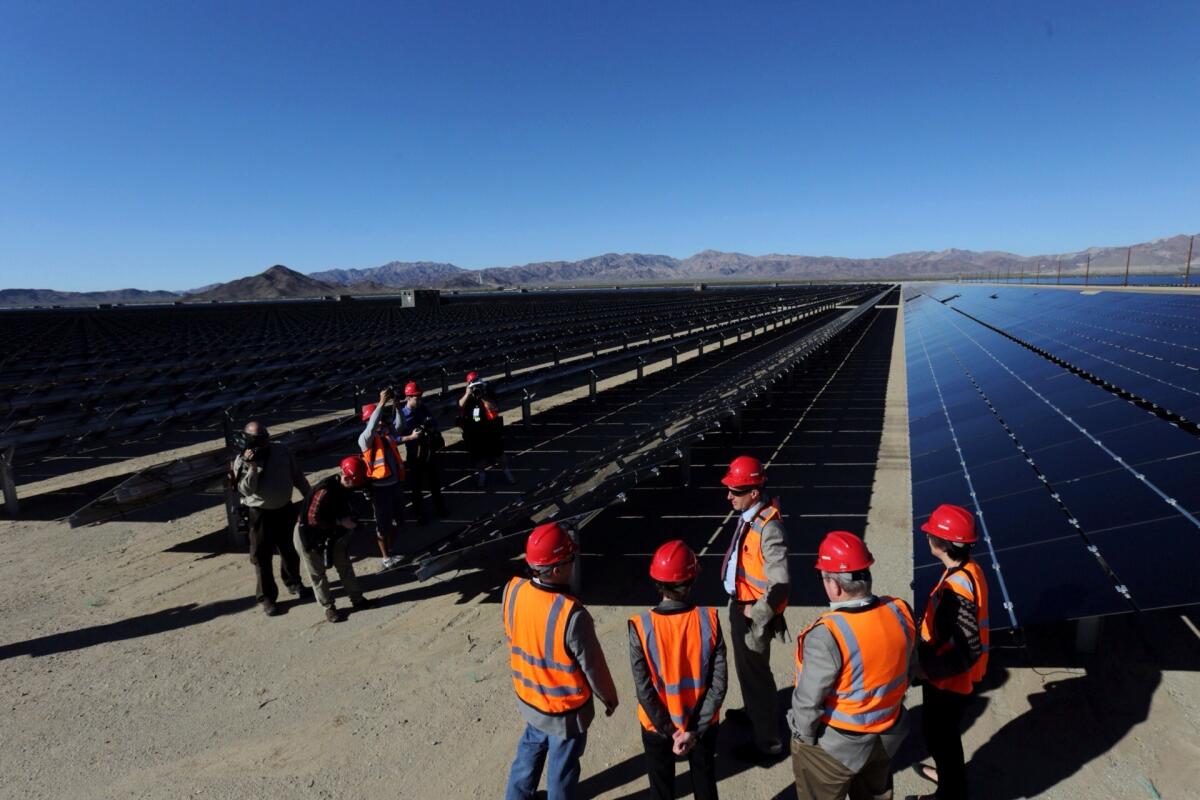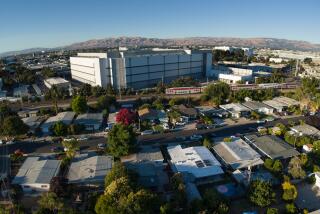Renewable energy requirement creates jobs, Berkeley study says

U.S. Interior Secretary Sally Jewell tours a new solar farm in Desert Center, Calif., on Feb. 9 2015.
Reporting from Sacramento — As lawmakers consider new measures to combat climate change, researchers at UC Berkeley released a study saying stronger renewable energy requirements would lead to new jobs.
California law requires the state to get 33% of its electricity from renewable sources, such as solar and wind, by 2020. A bill by Sen. Kevin de León (D-Los Angeles) would increase that standard to 50% by 2030.
Because building renewable energy facilities is a temporary gig, the study uses measurements in “job years” to estimate how much work would be created. One “job year” equals enough work to employ somebody full time for a year.
From 2003 to 2014, renewable energy requirements created 52,000 “job years,” the study said. Up to 429,000 additional “job years” would be created if lawmakers approved higher standards.
Betony Jones, one of the study’s authors and the associate chair of the Don Vial Center on Employment in the Green Economy, said meeting the proposed renewable energy target means the state would “really have to ramp up.”
“And if we do that in California, that would create quite a few jobs,” she said.
The California Business Roundtable, which opposes the climate legislation, said the study is incomplete.
“It does not look at the rest of the economy -- how much this will cost, what other jobs will be lost as energy costs increase, and what jobs will be lost as consumers pay more for energy and housing and less for other purchases,” said Rob Lapsley, the organization’s president.
Claire Conlon, a spokeswoman for De León, said the business roundtable represents the “old energy economy” and said the Berkeley study shows the senator’s legislation “will lay the groundwork for the workforce of tomorrow.”
“Californians know we have to move forward with building a sustainable clean energy economy,” Conlon said.
Follow @chrismegerian for more updates from Sacramento.
More to Read
Sign up for Essential California
The most important California stories and recommendations in your inbox every morning.
You may occasionally receive promotional content from the Los Angeles Times.










